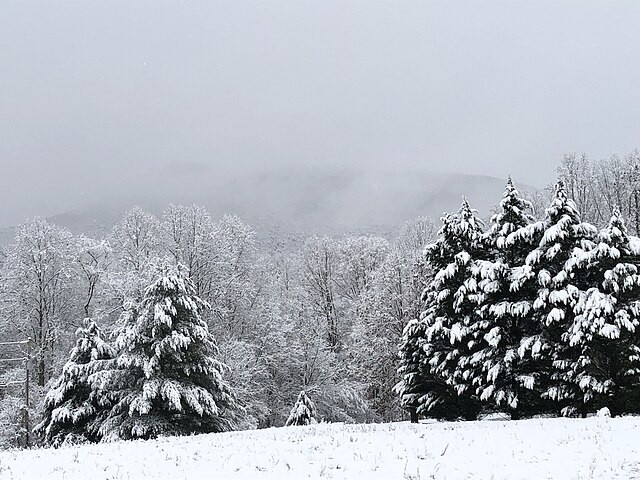An Arctic air mass has plunged the eastern United States into bone-chilling temperatures, with the Great Lakes region experiencing a paralyzing lake-effect snowstorm that has disrupted post-holiday travel and daily life. The storm, driven by cold air sweeping over unusually warm lake waters, has left millions under winter weather alerts and freeze warnings.
The National Weather Service (NWS) warned on Saturday that lake-effect snow could lead to near-whiteout conditions and impassable roads in some areas. "There will be localized areas that will be paralyzed from the lake snow," the NWS said, as some regions brace for accumulations of up to 6 feet.
New York Governor Kathy Hochul declared a state of emergency in 11 counties, including Erie and Jefferson, as snowfall rates reached 3 to 4 inches per hour, accompanied by the rare phenomenon of thundersnow. Watertown, near Lake Ontario, could see snow totals of up to 70 inches by Monday, forecasters predict. Erie County Executive Mark Poloncarz noted that some areas around Buffalo are expected to receive between 20 and 30 inches of snow at Highmark Stadium, home to the Buffalo Bills.
Despite the severe weather, Poloncarz confirmed that Sunday night's football game between the Bills and the San Francisco 49ers will proceed as planned. The team even posted on X (formerly Twitter), calling on fans to help shovel snow at the open-air stadium.
The storm's impact extends beyond New York. Parts of Ohio, Pennsylvania, and Michigan have also reported heavy snow and hazardous travel conditions. Erie, Pennsylvania, recorded 30 inches of snowfall by Friday night, while Interstate 90 was closed in Pennsylvania due to treacherous road conditions. Police in Michigan reported a 15-vehicle collision on U.S. Route 131 in Grand Rapids on Thursday night, likely caused by the icy conditions.
In addition to snowfall, the Arctic blast has brought the coldest temperatures since last winter to much of the country. Wind chills in the northern Plains and Upper Midwest plunged to dangerous levels, with parts of North Dakota experiencing wind chills as low as -40°F. The extreme cold poses a heightened risk of frostbite and hypothermia, according to the NWS.
Meanwhile, southern states, from Texas to the Carolinas, are under freeze warnings, with forecasters predicting the coldest air yet to come as the Arctic mass continues to spill southward.
For residents in the Great Lakes region, the storm marks the season's first major snowfall and presents a mixed blessing for winter sports enthusiasts. Ski resorts in western New York, such as Holiday Valley in Ellicottville, are preparing to open earlier than anticipated, with heavy snowfall creating ideal skiing conditions.
However, for many, the storm has brought disruption and danger. Airports across the nation, already stretched by record Thanksgiving travel, are bracing for potential delays and cancellations as snow and ice complicate flight schedules.
In Jefferson County, New York, emergency services have been stretched thin as snowdrifts block roads and strand motorists. A driver in Erie, Pennsylvania, reported seeing state police rescuing travelers trapped in the snow. "Travel will be difficult to impossible," the NWS warned, urging residents to stay off the roads.




